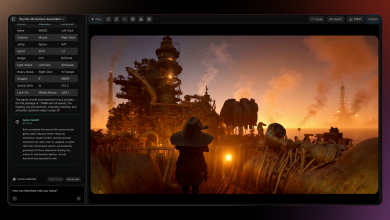A few decades ago, virtual reality (VR) was merely an entertainment concept in many science-fiction and futuristic films. Movies like ‘The Matrix’ portrayed characters using virtual reality and becoming completely immersed in a computer-generated environment. But with the advent of time, what used to exist only in the imaginations of sci-fi enthusiasts has become an extremely popular and fascinating technology that will impact several industries in the future.
In recent years, we have seen many large corporations exploring the virtual reality arena. Sony and Samsung are making virtual reality headsets while Google has invested over half a billion in a partnership to design virtual reality wearables that will increase productivity in the workforce. As more advancement is achieved in this field, the world will embrace new possibilities and the high cost of virtual reality will gradually diminish to make it available to everyone.
Moving at such a pace, we can expect virtual reality to make a strong impact on the way we work and play in the future. This technology is already making huge strides in the gaming industry and will become even more accessible for medical treatment, workforce productivity, and learning experiences. Below you’ll discover 7 life-changing experiences to expect from virtual reality.
7 Life-Changing Experiences to Expect in the World of Tech and Virtual Reality
Entertainment
The use of virtual reality has changed the way kids play games. For the last several decades, the gaming experience has been largely 2 dimensional. But now VR gaming immerses players in a 3-dimensional world that does not exist beyond the screen. Just like the regular 2D experience, it combines graphics and sound to produce a first-person perspective of game action. But the different aspect of VR gaming is its ability to trick the subconscious and render it unable to distinguish between real and simulated environments. A VR user feels as if they are physically present in another world—they can move their bodies in the artificial environment, not just their pupils and thumbs.
To enter the simulated gaming environment, users have to fasten their VR gaming devices and accessories including headsets, hand controllers, and sensor-equipped gloves. More than five hundred million units of these gadgets are expected to be sold in the United States by 2025. Although VR is huge in the gaming sector, it is also popular in virtual museums, virtual art galleries, and virtual theme parks. It offers users the opportunity to augment their experience through personalization, interactivity and richness of content.
Healing Complex Disorders
Scientists have been developing virtual reality systems for the therapy and treatment of phobias since the 1990s. VR therapy has since expanded to aid mental health treatment and open up new frontiers for patients and therapists alike. Complex disorders like social anxiety, schizophrenia, and PTSD (post-traumatic stress disorder) are now treatable with VR applications. The treatment methods available don’t rely solely on VR technology, instead, they incorporate the use of virtual reality as a scalable tool that can augment the effectiveness of treatment plans. For example, virtual reality is applied to increase the availability of exposure therapy—a psychological treatment designed to help patients confront their fears.
So imagine how easy it is now to set up an acrophobic patient on the top of a tall building, without having to go all the way up in real life. A hydrophobic person as well could deep-dive repeatedly without taking a trip to the bottom of the ocean. Continuous exposures like this will inevitably relieve any kind of anxiety disorder.
Physical Therapy & Rehabilitation
Virtual reality is one relatively new tool that some therapists are incorporating into their practice. The inherent body movements in the virtual environment make this tech invaluable for promoting physical fitness. Even for people who have injuries that caused a loss of functional mobility, virtual reality headsets may be used to create challenging situations to improve upper or lower extremity coordination and balance.
For example, a stroke patient can be immersed in an artificial environment where they are challenged to exercise their weak arm by reaching for ladders leading to the rooftop. Imagine how easy it will be for a veteran with PTSD to deal with tragic memories in a safe virtual environment.
The VR tech used in therapy and rehabilitation allows complete immersion in the artificial world through temperature-changing gloves and full-body suits that vibrate for physical sensations. Even virtual tasting and smelling is achievable through multisensory masks. Instead of the boring, repetitive exercises in rehab, the patient is now involved in fun and challenging adventures in the artificial world.
Professional Training
One of the most beneficial applications of VR is the ability to create learning environments. Different industries ranging from education to healthcare and manufacturing will increasingly depend on virtual reality technology to train employees. Imagine how much resources VR will conserve for a mechanic shop if apprentices could hop into a mechanic simulator and fix different technical issues on multiple cars. It’s a more efficient approach to learning than just watching a video tutorial or reading an article on the topic. This is because, in addition to teaching the correct procedure, virtual reality strengthens the visual and muscle memory of doing the task so it encourages better retention.
It’s easy to see why VR will dominate the training and recruitment sector in no time considering that it reduces the costs of material requirements for training employees. And it also eliminates costly mistakes or occupational hazards that are typically in real training sessions.
Education and Learning
Virtual reality is changing the way educational content is delivered. It’s a well-known aphorism that people learn best by doing. So far this has been a major constraint in the present educational system considering that it takes plenty of resources to enable students to explore the real-life version of what they have in their books.
Virtual reality allows students to explore different locations from across the world without ever having to leave the classroom. Imagine how smoothly a geography class would go if students could see the rings of Neptune at a close range or be present in a volcanic eruption site.
Moreover, a lot of people are visual learners. Instead of being stuck on boring textbooks and notes, students can be engaged in exciting, memorable virtual experiences.
Meetings and Everyday Communication
Although information technology has gradually reduced the need for business travels, virtual reality aims to take it one step further. Traditionally, executives can attend virtual meetings through conference calls. But it would be an entirely different experience if they could see and feel the conference room from every corner.
Since it creates a possibility for individuals to be present in simulated environments, linking two or more individuals in a single artificial location will enhance and eliminate a significant need for business travel.
Marketing
The internet has been the anchor of marketing since its invention, but VR technology may redefine how companies interact with customers and target them. VR will empower these brands to create computer-induced reality to help move potential clients along in the buyer’s journey.
For example, parks and resorts offering amusement rides could take you on a journey through a 3-dimensional world and let you experience one of their famous rides like the real stuff. Universities could take you instantly into your potential classes and let you explore other facilities in the location.
Final Thoughts
So, VR has the potential to change much of the world around us, and mostly for the better. It is expected to grow at a compound annual growth rate (CAGR) of 18.0% from 2021 to 2028. Besides offering an exciting virtual view, it saves resources for the experiences it offers.




